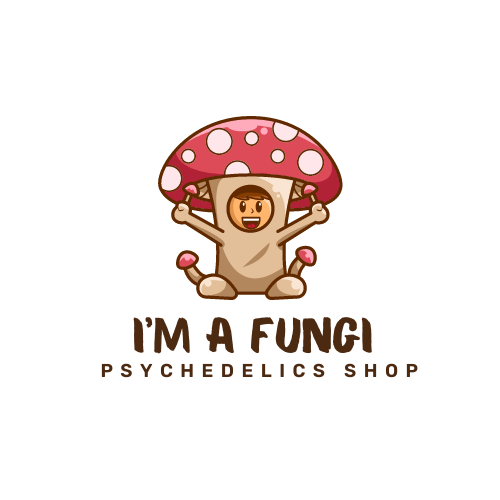BLOG
The science behind why mushroom microdose is gaining popularity

microdosing
Mushroom microdose, a practice that involves consuming small, sub-perceptual amounts of psychedelic mushrooms, has been steadily gaining popularity in recent years. This trend is fueled by growing interest in the potential therapeutic benefits of substances like psilocybin, the active compound in these fungi. Also, research on the effects of psychedelics on the brain continues to expand, so does the curiosity surrounding the use of mushroom microdose as a tool for enhancing well-being and cognitive function. In this article, we delve into the science behind why mushroom microdose is on the rise, exploring its neurological impacts, potential benefits, safety considerations, current research findings, personal testimonials, and the legal landscape shaping its future.
Overview of Microdose with Mushrooms
Definition of Microdosing
Microdosing involves taking small, sub-perceptual amounts of psychedelics like mushrooms to achieve subtle benefits without experiencing full-blown psychedelic effects.
History and Origins of Mushroom Microdosing
Mushroom microdose isn’t a new fad. It has roots in indigenous practices and gained modern popularity through the work of psychonauts and researchers like Albert Hofmann and James Fadiman.
Effects of Psilocybin on the Brain
Neurological Mechanisms of Psilocybin
Also, psilocybin, the active compound in mushrooms, interacts with serotonin receptors in the brain, leading to altered cognitive functions, emotions, and perceptions.
Impact on Serotonin Receptors
Also, by binding to serotonin receptors, psilocybin can modulate mood, cognition, and sensory experiences, potentially leading to therapeutic effects on mental health.
Potential Therapeutic Benefits of Mushroom Microdose
Improvement in Mood and Well-being
Microdose mushrooms may promote positive mood, reduce anxiety, and enhance overall well-being by subtly shifting brain activity and emotional processing.
Cognitive Enhancement and Creativity
Also, some users report increased creativity, focus, and problem-solving abilities while microdosing mushrooms, suggesting potential benefits for cognitive enhancement.
Safety and Risks Associated with Microdose
Potential Side Effects
While microdosing is generally considered safe, potential side effects like nausea, increased heart rate, and psychological discomfort can occur, especially in sensitive individuals.
Considerations for Safe Microdosing Practices
To minimize risks, it’s crucial to start with low doses, monitor personal responses, source quality mushrooms, and create a supportive environment when exploring the world of microdose.
Current Research and Findings on Mushroom Microdose
Studies on Efficacy and Safety
Research on mushroom microdosing is sprouting up like, well, mushrooms after a rainstorm. Studies suggest that microdose may have potential benefits for mood enhancement, creativity, and focus. Also, while early findings are promising, more robust research is needed to fully understand the efficacy and safety of this practice.
Challenges and Limitations in Research
Despite its growing popularity, mushroom microdose faces its fair share of challenges when it comes to scientific research. Also, issues like inconsistent dosing protocols, limited sample sizes, and the stigma surrounding psychedelics can make it difficult to draw definitive conclusions about the long-term effects of microdosing.
Personal Experiences and Testimonials
Real-life Accounts of Microdosing Effects
Many enthusiasts share anecdotal evidence of the positive effects of mushroom microdose. Also, from increased productivity to a heightened sense of well-being, personal experiences often highlight the potential benefits of incorporating microdose into one’s routine.
Individual Variation in Experiences
Just like mushrooms themselves, no two individuals’ experiences with microdosing are exactly alike. Also, factors like dosage, frequency, and individual brain chemistry can all influence how someone responds to microdose. It’s a bit like a box of assorted chocolates; you never know what you’re going to get.
Legal Status and Future Outlook
Regulatory Landscape of Psychedelics
The legal status of psychedelics, including mushrooms, varies widely around the world. While some countries have started to explore decriminalization and medical use of psychedelics, regulatory hurdles still exist in many places. Also, as more research emerges, the legal landscape may continue to evolve.
Potential for Mainstream Acceptance and Integration
As interest in alternative and holistic approaches to well-being continues to grow, there’s potential for mushroom microdosing to become more widely accepted and integrated into mainstream health practices. Who knows, in a few years, mushroom microdosing might be as common as avocado toast at brunch, trendy, yet surprisingly beneficial. In conclusion, the increasing popularity of mushroom microdosing reflects a growing openness towards exploring unconventional approaches to mental health and personal development. Also, while the science behind its effects is still evolving, the anecdotal evidence and preliminary research suggest promising avenues for further exploration. As society continues to navigate the complexities of psychedelic substances and their therapeutic potential, the trend of mushroom microdosing serves as a fascinating intersection of science, culture, and individual experiences. Whether as a tool for self-discovery or a pathway to new perspectives, the allure of mushroom microdosing invites a nuanced conversation about the intersection of traditional practices and modern understandings of well-being.
